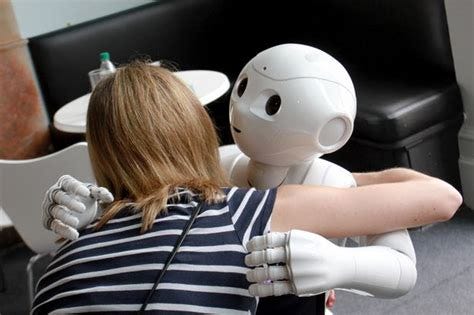This week we will look at a new underwater navigation and exploration system for the world’s oceans. We also find out what it will take for us to trust AI and we examine a couple of new patents from Amazon.
GPS for under the oceans
MIT researchers have developed an underwater navigation system that uses sound to move around and explore the oceans. GPS allows us to explore the earth and the stratosphere easily due to the system’s long life. However GPS is not useful in the oceans as once radio waves enter the water they become scattered. This is why sonar is used underwater rather than radio waves. Unfortunately using sonar is very energy intensive.
The MIT team have developed a battery free pinpointing system called Underwater Backscaller Localization (UBL). Rather than emitting an acoustic signal, UBL reflects modulated sounds from the environment. This gives positioning information at net-zero energy.
The team used low power acoustic signals from piezoelectric materials. These materials generate their own electric charge in response to mechanical stress. Piezoelectric sensors then use that charge to selectively reflect sound waves back into their environment. A receiver then translates the reflections (called backscatter) to generate information about ocean temperature or salinity. The system should also provide positioning information however this part of the system is still under development (due to the complications with sound being reflected multiple times off multiple surfaces underwater).
Whilst only at the prototype stage the system will eventually be used for exploration of the oceans. We currently have better maps of the surface of the moon than we do of the ocean floor.
Will you trust AI?
The answer depends upon your attachment style in human relationships. Researchers at the University of Kansas have found that people with attachment anxiety had less trust in AI.
Firstly, Attachment Anxiety refers to anxiety experienced about your relationships with significant others including parents, friends and partners. This anxiety generally stems from childhood experiences but it can persist into adulthood and negatively affect all relationships if not properly addressed.
The research showed that anxiety about relationships correlated (correlation is not causation but it is useful to understand) with less trust in AI. This includes chatbots used on websites, attitudes towards self driving cars and other autonomous machines.
With more and more of our everyday interactions involving some sort of AI this research has significant implications for adoption of AI by a significant portion of the population. Developers of AI driven products will need to enhance attachment security, which the research found increases the trust in AI. This involves cognitive ways to boost trust, for example ensuring that any AI is seen as a partner or team member. Psychologists call this a “relational affective route” to boost trust. This Harvard article goes into more depth.
AI that can find associations with the users’ individual attachment style, i.e understanding how the individual feels, thinks and behaves in close relationships, will have greater success. Attachment Style can be understood via analysis of the individuals interactions with the AI. It is likely that our individual interactions with AI driven robots, cars and chatbots in the future will need to be truly unique.
Flying Car approved for Dutch Roads
Regular readers will remember that we looked at the PAL-V Liberty flying car in October last year. This week the car was approved for use on roads in Holland. The next step is to have the car approved for flight. Hopefully within the next 12 months.
Amazon Patents
It is always interesting to see what Patents the big tech companies are taking out. We can hopefully deduce a few clues as to the future of their products. This week Amazon took out two interesting patents.
Firstly they have applied for a patent for a method of “Behavior Aware player selection for Multiplayer Electronic Games”. Essentially they have developed a method to determine who is acting like an “idiot” (I have other ruder words for how some people act online but will stick with idiot in this family friendly forum). When determining which player to pair against others in online multiplayer games (where the system pairs players) they will use this identification so that idiots will only play against other idiots. This should make the rest of the gaming system safer and more enjoyable for the majority.
Secondly they have applied for a patent for an autonomous robot to use facial recognition to identify people in order to deliver a package to them. Imagine being in a crowded public place and you order food. The robot will find you in the crowd and deliver your lunch. No more waiting in line, just order anything on the phone and the robot will find you and give it to you. The current application uses unmanned areal vehicles to identify people however other methods will no doubt be added in the future.
Paying it Forward
If you have a start-up or know of a start-up that has a product ready for market please let me know. I would be happy to have a look and feature the startup in this newsletter. Also if any startups need introductions please get in touch and I will help where I can.
If you have any questions or comments please email me via my website craigcarlyon.com or comment below.
I would also appreciate it if you could forward this newsletter to anyone that you think might be interested.
Till next week.








Ubers out of a job soon by robots?